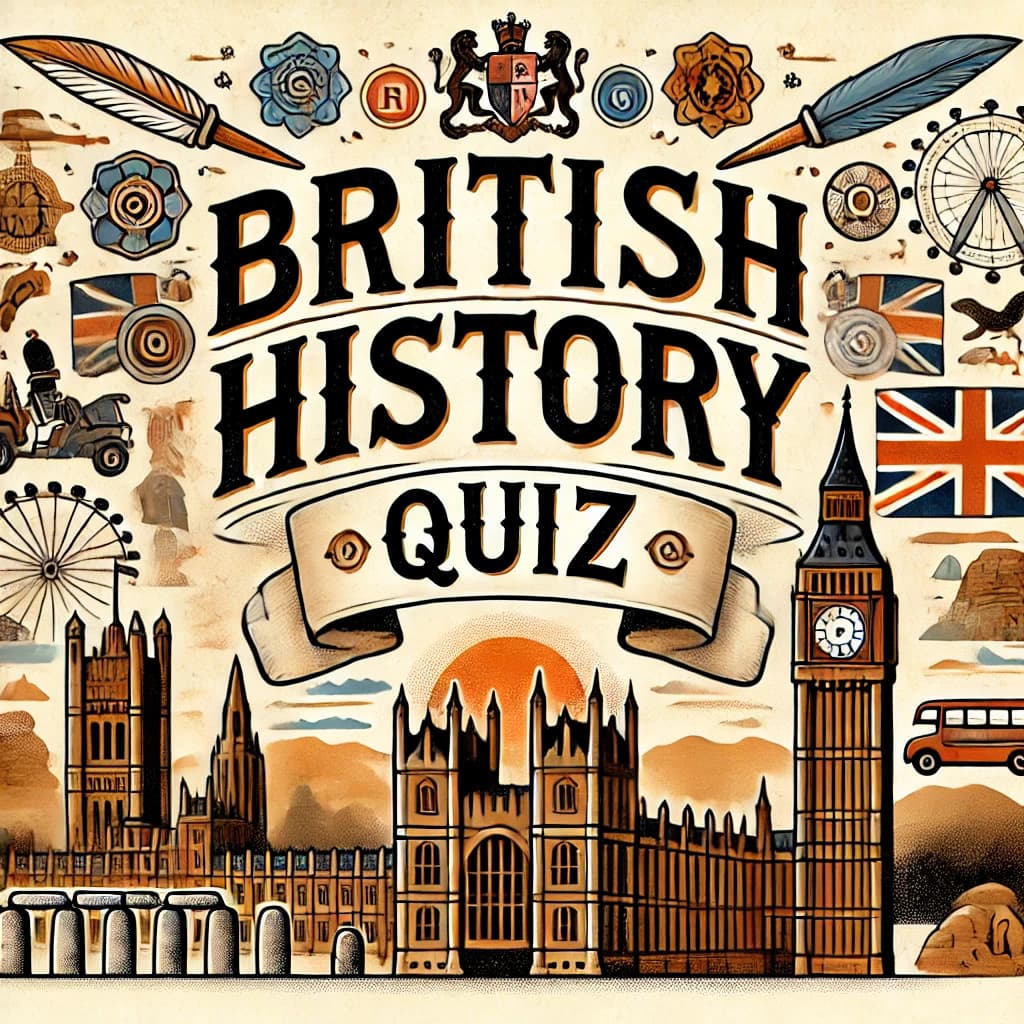Q1: Who was the first Norman King of England?
A1: William the Conqueror
Q2: In which year did the Battle of Hastings take place?
A2: 1066
Q3: What document, signed in 1215, limited the power of the King?
A3: Magna Carta
Q4: Which English King had six wives?
A4: Henry VIII
Q5: Who was the British Prime Minister during World War II?
A5: Winston Churchill
Q6: Which event in 1666 destroyed much of London?
A6: The Great Fire of London
Q7: The Act of Union in 1707 united England with which country?
A7: Scotland
Q8: Who was the Queen during the Victorian Era?
A8: Queen Victoria
Q9: What was the name of the ship that transported the Pilgrims to America in 1620?
A9: The Mayflower
Q10: Who was the famous nurse during the Crimean War?
A10: Florence Nightingale
Q11: The Great Famine in the 1840s affected which part of the United Kingdom?
A11: Ireland
Q12: Which British explorer is credited with mapping the east coast of Australia?
A12: Captain James Cook
Q13: Who was the monarch during the English Civil War?
A13: Charles I
Q14: Select all of the following that were battles in the Hundred Years' War:
A14: Battle of Agincourt, Battle of Crécy, Battle of Poitiers
Q15: Match each monarch to their significant event.
A15: Queen Elizabeth II - Longest-reigning British monarch, King John - Signed the Magna Carta, King Henry VIII - Established the Church of England
Q16: Arrange these events in chronological order from earliest to latest.
A16: The Norman Conquest, The Industrial Revolution, The Battle of Waterloo
Q17: Who was the first female Prime Minister of the UK?
A17: Margaret Thatcher
Q18: In which year did the United Kingdom vote to leave the European Union?
A18: 2016
Q19: Which British scientist formulated the laws of motion?
A19: Sir Isaac Newton
Q20: What was the primary language of the Anglo-Saxons?
A20: Old English
Q21: Who led the Parliamentarian forces during the English Civil War?
A21: Oliver Cromwell
Q22: What was the main outcome of the Glorious Revolution of 1688?
A22: Establishment of constitutional monarchy
Q23: Who was the British Prime Minister at the start of World War I?
A23: H. H. Asquith
Q24: What was the name of the period of rapid industrial growth in Britain during the 18th and 19th centuries?
A24: The Industrial Revolution
Q25: Select all of the following that were British colonies before gaining independence:
A25: India, Australia, Canada
Q26: Match each British literary figure to their notable work.
A26: William Shakespeare - Hamlet, Jane Austen - Pride and Prejudice, Charles Dickens - Oliver Twist
Q27: Who was the ruling monarch during the defeat of the Spanish Armada in 1588?
A27: Queen Elizabeth I
Q28: What major event did the signing of the Treaty of Versailles in 1919 conclude?
A28: World War I
Q29: Which King abdicated in 1936?
A29: King Edward VIII
Q30: Select all of the following that were British scientists:
A30: Charles Darwin, Stephen Hawking, Alexander Fleming
Q31: Match each historical event to its date.
A31: Battle of Hastings - 1066, Signing of Magna Carta - 1215, Great Fire of London - 1666
Q32: Who was the leader of the Suffragette movement in the UK?
A32: Emmeline Pankhurst
Q33: The Black Death first arrived in England in which year?
A33: 1348
Q34: Select all of the following that were British Prime Ministers:
A34: Tony Blair, David Cameron, Gordon Brown
Q35: Who was known as the "Iron Lady"?
A35: Margaret Thatcher

